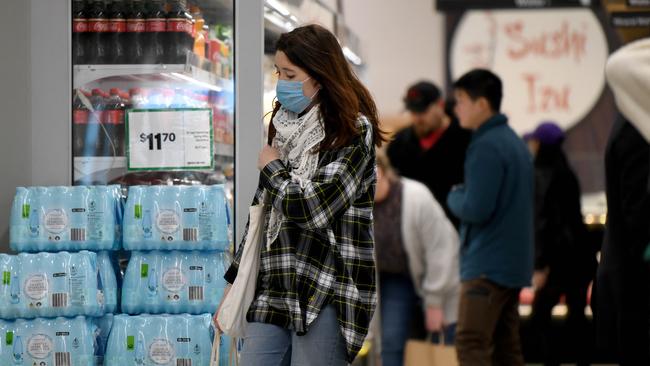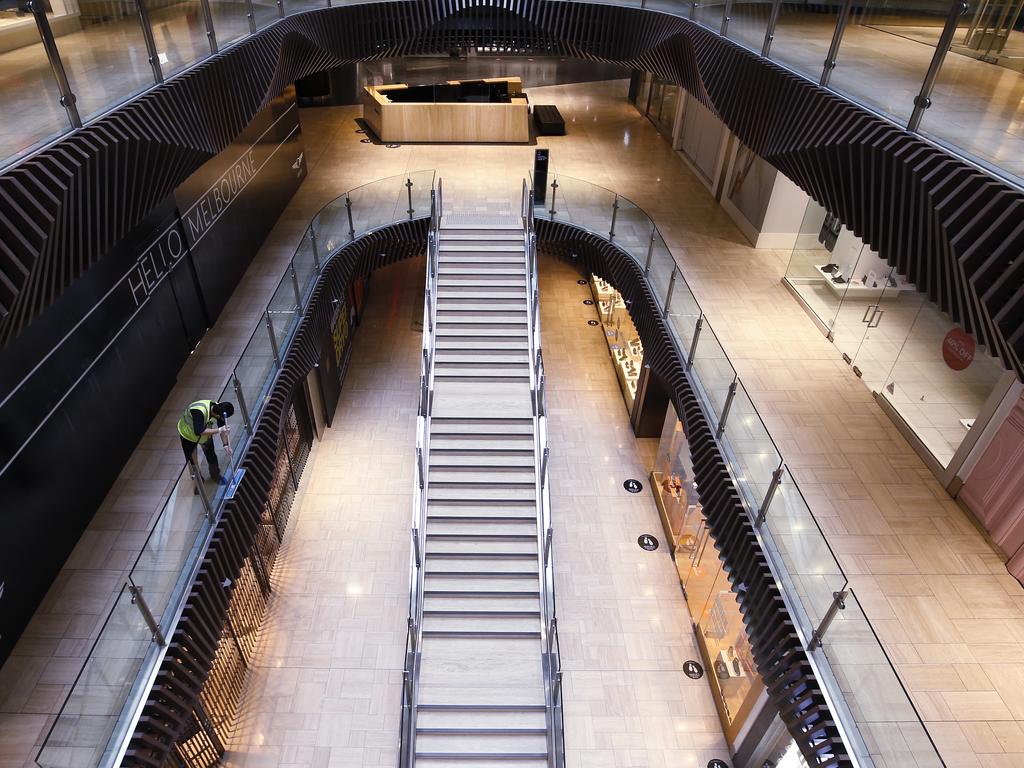Retail sector warned of spending slide
A surge in retail turnover will slow as stimulus payments taper off and consumers redirect spending elsewhere, Citi predicts.

Australian consumers flush with almost $50bn in government stimulus and early superannuation withdrawals helped the retail sector take market share from other parts of the economy in the June quarter.
However as coronavirus restrictions ease, that spending could be redirected and prompt a sharp fall in retail sales, a new report warns.
Citi analyst Craig Woolford’s report highlights the impact of stimulus payments, as the latest national accounts show household incomes and spending has been distorted by the impacts of COVID-19.
“The June 2020 quarter national accounts provides a useful insight, highlighting that retail has won in terms of its share of spending and the household’s income has been propped up by the government,’’ Mr Woolford said in his note to clients.
“In the June quarter, consumer spending fell by 12 per cent, while retail spending rose 2 per cent. Household incomes rose by 8 per cent, but if we strip out the government support they would have fallen by 9 per cent.”
Citi says the rise in retail’s share of spending in part reflects restrictions on other forms of discretionary spending, but also the desire of some to spend on food essentials and the home. For example, at-home food, liquor and tobacco grew sales at 8.8 per cent in the June quarter.
But once that stimulus starts to taper off, or the ability to make early withdrawals from superannuation ends, it will have an immediate knock-on affect to retail sales, Citi says.
It’s expected much of that household spending will be redirected away from retail.
Citi warns that retailers should prepare for a drop in turnover, and investors need to review their holdings or valuations of retail stocks.
“The outlook is for slower retail sales growth in our view, because the size of the stimulus
to households will likely fall while the underlying pressure on incomes from fewer jobs and lower wage growth should remain,’’ Mr Woolford said.
“Moreover, as restrictions ease, households should start to redirect their spending outside of retail. We are cautious on most discretionary retailers and have a preference for grocery.”
Because of this outlook, Citi has “buy” ratings on Coles and Metcash.
Citi argues there are three factors in the likely outlook for retail spending: the change in income for households; the mix of spending between retail and non-retail segments; and the decision to save income.
“The key issue is that the December quarter will slow materially with less stimulus and support from super withdrawal. We expect household cash flow growth of 4.1 per cent in the December 2020 quarter. The key unknowns for that quarter are the extent of further job losses as JobKeeper is tightened and extra government stimulus that may come from the budget on October 6, 2020.”
In terms of household savings, Citi said the percentage of income saved rather than spent rose to 19.8 per cent on a seasonally-adjusted basis in the June 2020 quarter. For the 12 months to June 30, household savings now stands at 7.9 per cent, a sharp rise from low levels over the past three years.
“Household savings has averaged 8.5 per cent over the long-term, but is likely to trend towards 11-12 per cent over calendar 2020 given government stimulus and higher unemployment.”







To join the conversation, please log in. Don't have an account? Register
Join the conversation, you are commenting as Logout